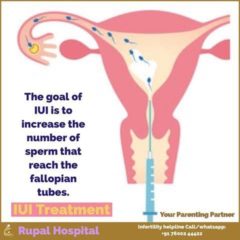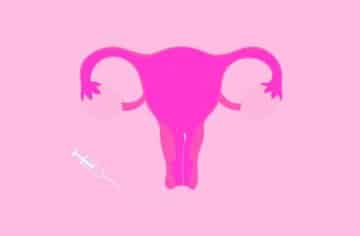Infertility is a problem facing a lot of our woman nowadays and they are being pushed to look for any means possible to conceive a child. Sometimes, the paths they take become dangerous and they later live to regret it afterwards.
However, alongside all these, there are still medically approved procedures women do and one of the most popular of these is the IUI. In this article, am going to tell all you need to know about IUI including the cost of IUI in Nigeria.
What is IUI

IUI is an abbreviation for Intrauterine Insemination. It is a form of artificial insemination. The process of IUI works by putting sperm cells right into the female’s uterus around the time she is ovulating, to aid the sperm get closer to the egg. This process is done to reduce the time and distance the sperm cells have to travel and makes it easier for them to fertilize the egg.
It is a very popular procedure and has shown a lot of promise in assisting women to fulfil their dream of having children.
Advantages of IUI
IUI has two major pros over most other types of fertility treatments. They are:
- The IUI procedure is less invasive compared to most other processes. It is less painful and while some slight cramping may happen, it is not beyond what any woman can cope with. Because no eggs are removed from the body, the process is far less invasive for the partner that will be carrying the pregnancy. This procedure is more comfortable for the woman.
- IUI is also relatively inexpensive; it is inexpensive compared to other processes used in the treatment of infertility. The procedure also costs less than IVF because it does not require egg extraction or laboratory monitoring.
For these causes, when suitable, IUI is a suggested procedure to try when first beginning with any fertility treatments.
Disadvantages of IUI
Although IUI is a great option, it does not most fertility challenges. The procedure is restricted for some certain causes of infertility. For IUI to be effective for example, the partner carrying the pregnancy needs to be ovulating at the time and have clear and unharmed fallopian tubes. The sperm used also has to have a certain level of motility. If these factors are not met in any way, a greater degree of intervention may be necessary.
The Procedure

Before having the insemination procedure, some medical practitioners advise that women take fertility medicines, which will help, stimulate ovulation. Semen is collected from the partner or the donor, as the case may be. The semen then goes through a process called “sperm washing” that collects a concentrated amount of healthy sperm from the semen. The medical doctor then puts the sperm right into your uterus. Pregnancy happens if sperm fertilizes the egg, and the fertilized egg then implants in the lining of the uterus. IUI is a guileless and low-tech procedure, and it is relatively less expensive than other types of fertility procedures. It increases a woman’s chances of pregnancy although the overall process is not totally guaranteed. The sperm washing process is important for two reasons: first, it clears everything but the healthiest and most mobile sperm, which have the best opportunity to reach the egg, and because injecting semen straight into the uterus can cause cramping and pain. Once the sperm is set and a fertile period is determined, the definite IUI is very similar to a pap smear. A speculum is used to mildly enlarge the vaginal walls, and then a thin catheter is interleaved through the cervix to inject the washed sperm.
The insemination process only takes about 5 to 10 minutes. While most women will find it exciting the very first time, the second, third and consecutive times might be unnerving. If the patient is relaxed, the process is generally pain-free but it is quite difficult to naturally relax in such a situation. Although the procedure is quick and done without anaesthesia, it can cause some mild cramping. If you experience any other symptoms, it is advised to inform your doctor about all you are feeling without shying so that he/she can adequately know how to successfully do the procedure without complications.
Cost of IUI in Nigeria

Now, let’s talk about the cost of IUI in Nigeria, There are many health institutions in Nigeria that now offer this procedure. On the average, the cost of IUI in Nigeria is between N100, 000 and N300, 000 deepening on a lot of factors including the hospital, the age of the patient, the patient’s cycle, the procedure, and other related factors that influence the cost of IUI in Nigeria. This process is usually way more expensive in private hospitals and clinics than in teaching or government-owned hospitals.
Therefore, it advised that if you wish to reduce the cost of IUI in Nigeria, you should visit the public hospitals although I must warn you to check the reputation of the hospital well. Do not be in a rush because of the high cost of IUI in Nigeria and you land in a quack hospital.
One of the biggest factors that affect the overall cost of IUI in Nigeria is the number of attempts you try before you eventually become pregnant. Based on both partners’ health as well as the fertility of parents, the rate of success can range between 10 per cent and 20 per cent. This means that a patient may need anything from 4 to 10 different cycles before the procedure results in pregnancy. Depending on the clinic, each cycle may range between N50, 000 and N150, 000. Therefore, as you can see, the cost of IUI in Nigeria is mostly manageable and can be borne
Just like the clinic in question, the cost varies from one hospital and clinic to another. Please note that ALL payments must be made before the process commences.

Isreal olabanji a dental assistant and public health professionals and has years of experience in assisting the dentist with all sorts of dental issues.
We regularly post timely and trustworthy medical information and news on Fitness, Dental care, Recipes, Child health, obstetrics, and more.
The content is intended to augment, not replace, information provided by your clinician. It is not intended nor implied to be a substitute for professional medical advice. Reading this information does not create or replace a doctor-patient relationship or consultation. If required, please contact your doctor or other health care provider to assist you to interpret any of this information, or in applying the information to your individual needs.





